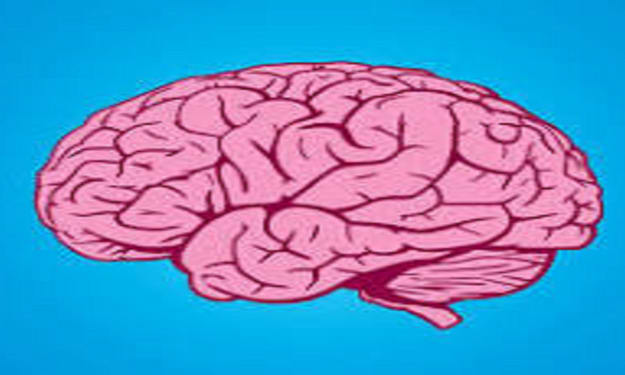Why Is There So Much Pain Around?
Exploring the Depths of Human Suffering: Unraveling the Mystery of Pain

Introduction
Pain is a distress signal that tells us something is wrong within our bodies. Available statistics indicate that there is probably too much pain around, particularly physical pain. When emotional pain is included, the outlook may be devastating.
At present, global consumption of painkillers stands at 67 billion dollars annually. With a current world population of approximately 8 billion, per capita consumption of painkillers is approximately 8.3 dollars. In my opinion, this is too much. Imagine every global citizen spending 8.3 dollars annually just to deal with physical pain!
When you experience pain, your attention is divided between the pain itself (which cannot be ignored) and the tasks you are trying to accomplish. This divided attention affects efficiency and productivity. Additionally, pain-related conditions contribute to significant healthcare expenditures, including costs associated with diagnosis, treatment, medication, rehabilitation, and long-term management. Chronic pain conditions often require ongoing medical interventions and therapies, leading to increased healthcare utilization and expenses.
Besides productivity, pain also affects overall quality of life. Other important aspects such as sleep, mobility, thinking, and appetite may be impacted as well.
This article aims to explore the various sources of the pain we experience and suggest an integrative approach to alleviate the situation. Please continue reading!
Where Does All the Pain Come From?
Inflammation
On the surface, there are four major sources of pain: inflammation, imbalances, emotional pain, and outright cellular damage. Inflammation is a reaction of the immune system. When the immune system encounters something it perceives as hostile, it causes body cells to become inflamed. Inflammation closes the cells’ receptors thus preventing the perceived enemy to enter the core of the cell and disrupt life processes which are taking place there. Unfortunately, inflammation is accompanied by pain.
There are countless things the immune system perceives as harmful, of which we are unaware. As a result, we experience constant pain and resort to medication. However, beware! Most pharmaceutical drugs used to control pain may have other more dangerous health effects than the pain they aim to control.
Take acetaminophen (paracetamol) for example. It is a very effective pain reliever and inexpensive. In many countries, it is available over-the-counter, meaning pharmacies can sell it to you without a doctor's prescription. However, how many people know that it can be highly toxic to the liver? According to Mayo Clinic:
‘Taking too much acetaminophen (Tylenol, others) is the most common cause of acute liver failure in the United States’
And that is in United States where the general population is relatively enlightened. Can you imagine what is taking place in less developed parts of the world in Africa, Latin America and Asia?
Some common materials we constantly ingest that may cause inflammation include:
• Sugar;
• Vegetable cooking oils;
• Processed starch;
• Alcohol;
• Tobacco smoke; and
• Foods that cause the body to produce histamine

There is a long list of histamine-producing foods. You can search for it online.
Imbalances
Imbalances in the body are disruptions or deviations from the normal functioning of various physiological processes. These imbalances can occur at different levels, including cellular, organ, and systemic levels. Common imbalances include:
• Hormonal imbalances;
• Electrolyte imbalances;
• Acid-base imbalances;
• Nutritional imbalances; and
• Imbalances in the microbiome
We cannot delve into the details of each imbalance in this article. However, it is important to know that disruptions caused by any of these imbalances affect health. Consequently, the body sends distress signals, often in the form of pain.
Instead of spending money on pain medication, try to undergo tests to determine if your pain is caused by an imbalance. If it is, correcting the imbalance can eliminate the pain for good!
Emotional Pain
Emotional pain, also known as psychological or mental pain, arises from emotional or psychological sources. Unfortunately, these feelings and experiences can run deep and occupy a large portion of an individual's thought process. As a result, they consume a lot of energy. One by-product of this energy consumption is acid. This acid, combined with dietary acid (which we produce from our protein and carbohydrate-rich diet), creates acid-base imbalances that wreak havoc on various biological systems in the body.

Do you experience emotional pain? Take steps to control it. Our handbook 'The Nuts and Bolts of Stress Management and Mindfulness Development' might help. You can access it here:
Cellular Damage
Cellular damage can result from infections, injuries, or imbalances. Infections cause pain as the body attempts to heal itself, leading to local inflammation of the tissue cells. Injured tissue may also experience misalignment, resulting in blockage of blood flow and impingement of nerves, both of which cause pain.
Imbalances also cause cellular damage. For example, free radicals produced during cellular metabolic processes can do a lot of damage if not neutralized. Neutralization is done by natural chemicals called antioxidants, primarily found in vegetables, spices, and fruits. Insufficient consumption of these antioxidant-rich foods leads to an excess of free radicals in the body, which seriously damages cell membranes. This damage initiates a cascade of reactions that not only cause pain but can also result in diseases like cancer.
Conclusion
Unless you make an effort to learn more about pain and its causes, you may end up becoming dependent on pharmaceutical medications. Unfortunately, these medications can also be harmful due to their side effects.
Understanding what pain is and where it comes from can help you naturally control it. By controlling pain naturally, you not only make your life more comfortable but also avoid the dangerous side effects of pain-killing drugs.
More health and wellness insights at:
About the Creator
Juma Killaghai
Juma Killaghai is a research chemist with over 30 years of experience in the field of research and development. He has a Master’s degree - Organic chemistry, from the University of Dar es Salaam. He resides in Dar es Salaam, Tanzania






Comments
There are no comments for this story
Be the first to respond and start the conversation.